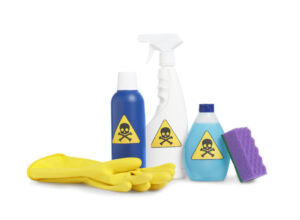Healthcare
Water: The Elixir of Life – Recognizing the Signs of Dehydration
Water is essential for life, making up about 60% of the adult human body and playing a vital role in many bodily functions such as temperature regulation, waste removal, and joint lubrication. Despite its crucial role in health, many people often neglect their hydration needs, leading to dehydration. Water supports health by aiding in digestion, nutrient absorption and transportation, facilitating chemical reactions, and maintaining blood volume and pressure. Recognizing the signs of dehydration, which include thirst, changes in urine color, dry mouth, fatigue, headaches, dizziness, dry skin, and hunger pangs, is critical for maintaining hydration. To ensure adequate hydration, it’s recommended to drink at least 8-10 glasses of water daily and consume fruits and vegetables with high water content. Prioritizing hydration is essential for supporting vital bodily functions and leading a healthier life. Remember, every drop counts when it comes to health.
Read MorePreventing Home Poisonings: A Guide to Safe Handling and Storage of Everyday Items
Every year, more than 4,000 Canadians die from poisoning, a toll that surpasses transportation-related deaths. A wide array of common household items, including medications, cleaners, and cannabis products, pose significant poisoning risks. Medications lead in causing poisoning incidents, often due to misuse or accidental consumption. Household cleaners, attractive to children because of their colors, can become harmful when mixed. Similarly, cannabis edibles might be mistaken for regular food by children, potentially leading to severe symptoms. Laundry detergent pods, personal care products containing alcohol, certain indoor plants, and wild mushrooms also present considerable poisoning hazards.
To mitigate these risks, it is essential to store dangerous products out of children’s reach, preferably locked away, and maintain them in their original packaging. Following usage instructions carefully, preventing the mixing of chemicals, and keeping specific items like cannabis products away from children are crucial steps. Installing carbon monoxide alarms and ensuring they are functional can also prevent poisoning.
In case of a poisoning incident, immediate action is critical. Contacting a local poison centre at 1-844-POISON-X (1-844-764-7669) or dialing 911 in severe cases is advised. However, awareness of local poison resources remains low among Canadians, underscoring the importance of enhanced public education on poisoning prevention and response. Recognizing potential hazards, implementing preventive measures, and knowing how to act in emergencies can significantly lower poisoning risks in Canadian homes.
Read MoreAdapting to Summer Hour Time: A Caregiver’s Guide
As summer approaches, the shift to daylight saving time can disrupt routines and well-being, especially for caregivers and those they care for. Here are key tips to smoothly transition into summer hours:
Gradual Adjustment: Shift daily routines gradually before the time change to ease into the new schedule.
Embrace Natural Light: Maximize exposure to daylight, especially in the morning, to regulate internal clocks.
Maintain Consistent Routines: Stick to regular activities like meals and exercise to anchor the day.
Promote Good Sleep Hygiene: Create a conducive sleep environment and encourage relaxation before bedtime.
Stay Hydrated and Eat Well: Adapt hydration and nutrition habits to match increased activity levels.
Plan for More Outdoor Activities: Take advantage of longer days for outdoor time, which boosts mood and activity levels.
Monitor and Adjust: Keep an eye on adaptation signs and be ready to tweak routines as needed.
Take Care of Yourself: Prioritize self-care to manage the challenges of transitioning to summer hours.
With preparation and flexibility, caregivers can ensure a smooth adjustment for themselves and those they care for, maintaining well-being throughout the summer months.
Read MoreThe Transformative Benefits of Music Therapy on Behavior
Music therapy, a practice that transcends mere entertainment to tap into music’s profound healing abilities, is gaining prominence in modern healthcare. This approach addresses a spectrum of physical, emotional, cognitive, and social needs, playing a pivotal role in behavioral modification. Here’s a concise exploration of the transformative benefits music therapy offers, highlighting its capacity to be more than just pleasurable sounds but a powerful agent of change and healing.
The Core of Music Therapy: It’s an evidence-based practice where credentialed professionals use music’s inherent qualities to create personalized interventions. These can facilitate communication, reduce stress, alleviate pain, express emotions, enhance memory, and aid physical rehabilitation. Its universal appeal and adaptability make music therapy a versatile behavioral health tool.
Behavioral Transformation Through Music:
Emotional Regulation and Expression: Music serves as an alternative language for those struggling to express their feelings, providing a therapeutic outlet for individuals grappling with anxiety, depression, or trauma.
Stress Reduction and Relaxation: Documented to soothe, music therapy combines with relaxation techniques to reduce stress and anxiety significantly, promoting a calmer demeanor and adaptive behavior.
Cognitive Enhancement: Music therapy improves attention, memory, and executive function, which in turn fosters better behavioral outcomes across various conditions.
Social Skills Development: In group settings, it facilitates social interaction and skill enhancement, benefiting individuals with social challenges by improving their relational interactions.
Motivation and Engagement: Particularly effective in rehabilitation, music therapy enhances motivation and engagement, making therapeutic exercises more enjoyable and leading to better treatment adherence.
Conclusion: Music therapy is an active and engaging process with the power to profoundly influence behavior. It promotes emotional expression, stress reduction, cognitive improvement, social skill development, and increased motivation. As ongoing research uncovers more about music’s therapeutic potential, it’s evident that this age-old art form holds contemporary miracles for behavioral health. Music therapy offers a unique and powerful contribution to healthcare, harmonizing the mind, body, and spirit for a balanced, healthy, and harmonious life.




